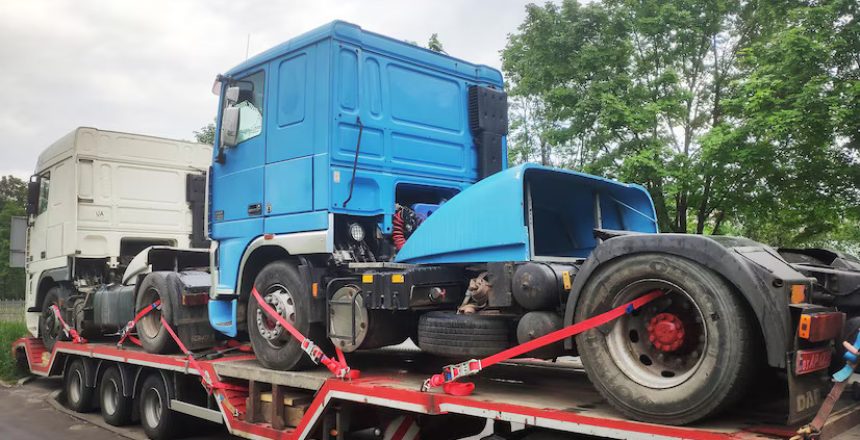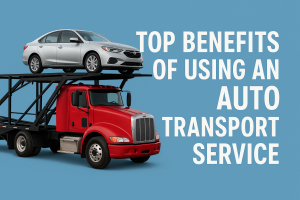When you’re faced with the challenge of transporting oversized or heavy loads, understanding heavy hauling services becomes crucial. These specialized services aren’t just about moving things; they’re about navigating regulations and ensuring safety.
Whether you’re relocating construction machinery or large industrial equipment, knowing when to call in the experts can make all the difference. But what exactly qualifies as a heavy haul, and how do you choose the right provider for your needs?
Understanding Heavy Hauling Services
Heavy hauling goes beyond standard shipping—it involves moving oversized or overweight loads with precision and care.
What Is Heavy Hauling?
Heavy hauling includes transporting items that exceed:
- Standard weight or size limits
- Legal road dimensions without permits
- Typical vehicle capabilities
Specialized Equipment Used
These hauls require vehicles built for the job, such as:
- Flatbeds for large, flat cargo
- Lowboys for extremely tall or heavy items
- Multi-axle trailers to distribute weight properly
Route Planning and Regulations
Due to the complexity, haulers must:
- Plan routes carefully to avoid low bridges or restricted roads
- Obtain permits for oversized or heavy loads
- Follow local and federal transport laws
Why Experience Matters
Choosing a qualified heavy hauler ensures:
- Compliance with safety regulations
- Proper securing and transport of your load
- Minimized delays and on-time delivery
Partnering with experienced providers helps you navigate these challenges and ensures your cargo reaches its destination safely and efficiently.
Types of Loads That Require Heavy Hauling
Heavy hauling is necessary when transporting large loads that exceed the typical size or weight limits of standard shipping methods. These services utilize specialized equipment and expert planning to ensure safe, efficient, and compliant transport of various oversized items.
Oversized Equipment and Machinery
Large construction and industrial machinery often cannot fit on regular trucks, requiring reinforced trailers and special permits to transport safely.
- Bulldozers, cranes, and excavators, which are essential for construction projects, demand heavy-duty transport.
- Agricultural machines like tractors, harvesters, and plows need robust trailers due to their size and weight.
- Wind turbine components, such as blades and towers, are large and fragile, requiring careful handling and tailored transport solutions.
Industrial Materials and Structures
Certain industrial materials and structures are either too heavy, too long, or too uniquely shaped to be transported on regular trucks, making specialized transport a necessity.
- Steel beams and coils, often used in large construction projects, require heavy hauling due to their size and weight.
- Concrete pipes and barriers used in infrastructure projects need secure and reliable transport, often with custom solutions.
- Prefabricated buildings or storage tanks require careful planning to avoid damage during transit, along with permits for oversized loads.
Heavy Vehicles and Bulk Loads
Heavy hauling services are essential for transporting large vehicles and bulk materials that require additional routing expertise, proper weight distribution, and specific equipment.
- Buses, military trucks, and large containers need specialized transport to avoid damage, as well as compliance with legal weight restrictions.
- Modular units or cabins, used in both residential and commercial settings, require specific handling to ensure safety and prevent structural damage.
- Bulk shipments, such as gravel, stone, or sand, need oversized trailers to accommodate the volume while meeting legal transportation standards.
Choosing the Right Heavy Hauling Provider
Selecting the right heavy hauling provider is crucial to the success of your project. Ensuring that they have the experience, resources, and commitment to your specific needs will help avoid delays and complications.
Experience and Expertise
When choosing a provider, it’s vital to evaluate their experience in handling loads similar to yours. This ensures they understand the complexities involved, whether it’s in transporting oversized equipment or navigating challenging routes.
- Providers with experience are more likely to handle unforeseen challenges and provide tailored solutions.
- Expertise in your specific type of load, such as construction machinery or bulk materials, ensures the provider can offer the most appropriate equipment and methods.
Equipment and Technology
The right equipment is essential for safe and efficient heavy hauling. Ensure the provider uses specialized trailers, cranes, and load-securement technologies suited to your load type.
- Ensure they have the necessary vehicles, like flatbeds, lowboys, or modular trailers, for your specific needs.
- Advanced tracking and communication technology can also offer real-time updates and added peace of mind during transport.
Licensing, Insurance, and Reviews
Before finalizing your choice, verify that the provider is licensed and insured to handle heavy hauling services. This protects both you and the provider in case of accidents or damages.
- Check for appropriate certifications, such as state or federal permits, to ensure legal compliance.
- Read customer reviews and testimonials to gauge their reputation for reliability and service quality.
- Ask for proof of insurance to safeguard your investment during transport.
Choosing the right provider ensures that your heavy load arrives safely, on time, and in compliance with all regulations.
Heavy hauling services are essential for transporting oversized or heavy loads that standard shipping methods cannot accommodate. Whether you’re moving large machinery, industrial equipment, or bulk materials, choosing the right provider ensures your load is handled safely, efficiently, and in compliance with all regulations.
With the proper equipment, expertise, and attention to detail, a qualified heavy hauling provider can make the difference between a smooth transport process and costly delays.






